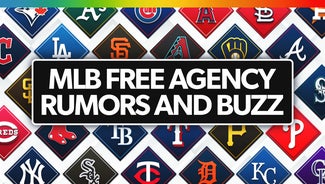
Venezuela's passion: a spirited baseball rivalry
The stadium is packed with more than 25,000 expectant fans waving flags, blowing whistles and wearing the royal blue or black caps of Venezuela's two premier baseball teams - a rivalry that unites the country in its national passion and propels standouts to Major League Baseball.
Millions of Venezuelans drop everything when their two premier teams, the Leones de Caracas and the Navegantes del Magallanes, go up against each other as they are this week in the country's championship series. Fans throughout Venezula stop to huddle around televisions, and traffic thins out noticeably.
During one recent game, a home run triggered a burst of fireworks behind the bullpen at dusk, the smoke wafting across the crowd and mixing with the smell of beer that people had tossed in the air to celebrate.
How big is baseball in Venezula? Even President Hugo Chavez gloats in his speeches when his team, Magallanes, wins. And he makes sure to halt his marathon speeches in time to avoid interfering with games.
The teams include major leaguers like San Francisco Giants slugger Pablo Sandoval, Detroit Tigers pitcher Armando Galarraga and Texas Rangers shortstop Elvis Andrus. And fans of both clubs brag that no team anywhere is better, with the possible exception of the New York Yankees - who are also very popular in Venezuela.
``A Caracas-Magallanes game is something else. You feel like your heart is going to come right out of your mouth,'' Sandoval said.
The excitement begins hours before the afternoon's first pitch, as players stretch on the diamond and children hold out baseballs, hoping for autographs. Some fans of the Leones, or Lions, hold up large stuffed cats in the bleachers to show their spirit. Magallanes has a mascot dressed as a parrot.
The games soon take on a party atmosphere, with some fans drinking Venezuela's favorite spirit - whiskey.
Still, if the atmosphere is rowdy, it's typically not violent. Fans of the two teams are often interspersed in the crowd, and it's common for families and friends to have divided loyalties.
Leones fan Claudia Zapata says she has been trying unsuccessfully for 15 years to convince her husband Andres to convert from being a Navegantes fan.
``More than seeing it as a rivalry, it's healthy competition. We feed off each other,'' Zapata said. She said it's like a ``reciprocal hatred,'' yet it brings people together in a common love of the game.
``I've seen players who were just other guys in the pack. They weren't big figures, but in a Caracas-Magallanes game they turned into giants,'' said shortstop Marco Scutaro, who has played for Caracas and signed with the Boston Red Sox last month.
``I have no doubt that energy comes from the public. It's pure adrenaline for us. The fans inspire us,'' Scutaro said.
Other Venezulan stars agree.
``It's madness. People drink large amounts of beer and whiskey, they're splashed with beer, they shout like crazy people,'' said former big league slugger Tony Armas, who also played for Caracas. ``But the most beautiful thing is that they come away from it together, like family.''
Soccer is the most popular sport in nearly all of South America, but Venezuela has had baseball as its No. 1 pastime for generations - like the other Caribbean hotbeds of talent including the Dominican Republic, Cuba and Puerto Rico.
Baseball was widely introduced to Venezuelans in the early 20th century, brought by Americans who were working for oil companies as they began to tap the vast crude reserves in western Venezuela. Local employees took to the sport first, and it soon caught fire nationwide.
Hall of Fame shortstop Luis Aparicio, Ozzie Guillen and Andres Galarraga were among the Venezuelan stars of the past. Current big names in the big leagues include Johan Santana, Francisco Rodriguez, Victor Martinez and Bobby Abreu.
Chavez, who has been antagonistic toward the U.S. government for years, said other Latin American presidents have teased him ``that baseball is an imperialist sport.'' But he said he told Brazilian leader Luiz Inacio Lula da Silva that ``we in Caracas freed baseball - our Caribbean baseball,'' saying the Venezuelan variety is ``among the best in the world.''
``Long live the passion for baseball,'' Chavez said in a televised speech Saturday, clearly pleased the Navegantes had won the first game of the seven-game series 9-0. The team could win the series with a victory Thursday night.
``We're sorry about the beatings the Magallanes have given Caracas,'' Chavez said with a smile. ``We want to beat them, but we don't want to humiliate them.''
Chavez, who as a boy once dreamed of being a major league pitcher, scolded a political ally in 2008 when the state governor suggested the possibility of taking over management of Magallanes - like the socialist president has repeatedly nationalized businesses. Chavez said at the time: ``Leave my Magallanes alone to see if we'll win next year.''
Magallanes was started in an area of Caracas known by the same name but moved for good in 1969 to the nearby city of Valencia after a series of ownership changes, and has remained there ever since.
Caracas traditionally has had a stronger record, winning 16 Venezuelan championships since 1942, versus 10 for Magallanes. This year is only the third time the two teams have faced off in the championship, and Magallanes won the title in the previous two matchups, in 1994 and 1997.
The winner of the series this week goes on to represent Venezuela in the Caribbean Series next month, which this year will be played on Venezuela's Margarita Island.
---
AP Photographer Fernando Llano contributed to this report.










